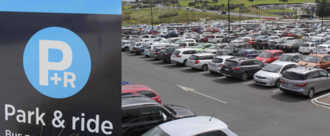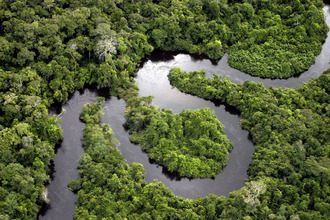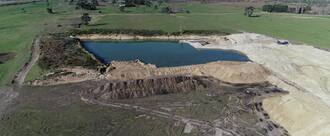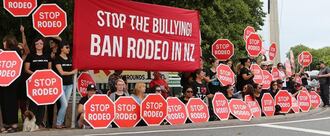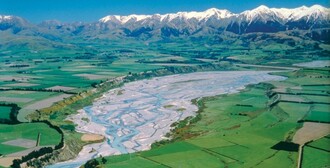-
Support Out of Hours Music and Art Schools (OOHMA) Staff for better working conditionsOut of Hours Music/Art Classes (OOHMA) have been a longstanding part of our music and art community in New Zealand for the past fifty years. Access to funding from the MOE ensures that public music schools deliver opportunities for young children in New Zealand to have a chance at learning a musical instrument without financial burden. Emerging research confirms the importance of music and arts as key factors in a child’s education and well-being. Children are known to perform better at other subjects at school if they are learning a music instrument or participating in art, as well as improved social interaction, confidence and emotional expression. The Ministry of Education currently facilitates funding to around 150 schools in New Zealand who, through the OOHMA scheme, employ hundreds of tutors who deliver music and art tuition to thousands of school children. Many of our current OOHMA are operating in excess of their funding to cope with increasing demand and have to turn students away. More families are turning to OOHMA schools for music lessons for their children, because they cannot afford the costs of private tuition.1,310 of 2,000 SignaturesCreated by Michael Greenwood
-
We want more Park & Ride facilities on the Hibiscus CoastCurrently the Hibiscus Coast Bus Station Park & Ride has 521 spaces and AT plan to provide an addition 90 spaces in the year July 2019 – July 2020. These additional 90 spaces will not provide for the current demand, let alone for future growth. Why we need more Park & Ride facilities; 1. Demand exceeds supply! Already Park & Ride vehicles parked outside of the Park & Ride facility on a weekday basis easily surpass 200 vehicles. As the area around the Park & Ride is developed these cars will have nowhere to park. 2. There are 55,000 people living on the Hibiscus Coast and there are subdivisions that are currently being developed, or are already on the market that are within, or on the boundary, of the Hibiscus Coast that will bring an additional 20,000 people to the area. These additional houses will generate annual rates revenue for Auckland Council of around $19 Million, we need that to be invested in transport infrastructure. 3. AT feeder buses from the Whangaparaoa Peninsula do not work. If you live in Gulf Harbour it will take you 40 mins to get to the Hibiscus Coast Bus Station. It’s actually quicker to catch an AT bus from Warkworth to the Hibiscus Coast Bus Station! (35 mins). One way commutes to the city via Public Transport that take 2 hours plus do not make Public Transport a viable option. Why I think a petition is needed... I found that in the public consultation for AT’s 10 year Regional Public Transport Plan that of the 462 people who submitted on it, only 42 supported more Park & Rides which I don't think reflects what many on the Coast want. This petition is a simple way for Coasties to put their voice on this issue to Council as a whole to request more Park & Rides. Our power is in our numbers, so please share this with your locally based family and friends and if they want more Park & Rides encourage them to sign this petition now.591 of 600 SignaturesCreated by Claire Teirney
-
Bring Priya and her girls to safety in New ZealandMost of us believe family comes first. But in just a matter of days, some people in the Australian government could deport two small girls to their death - unless the New Zealand government offers them safety. Picture this: Two small girls scream with fear as they are forced to watch their mum being physically dragging onto a plane - she fights the attempt to deport her back to Sri Lanka, a country she escaped after watching her fiancé be burnt alive. Priya knows that if she and her daughters are forced back, her daughters may suffer the same fate, or even worse as revenge for her escape, like any mum, she is fighting for her children’s safety. Tharunicaa and Kopika are 2 and 4, they were born in Australia and have lived their whole lives in the town of Biloela, a community that loves them and their parents Priya and Nades and is desperately fighting for them to stay. The whole town wants them back home, but instead the Australian government has sent them to Christmas Island, a detention centre routinely used for the deportation of people with criminal convictions and which our own politicians have described as disgraceful. While the Australian government is refusing to let them go home, we are begging the NZ government to step in and save these two girls from likely death. A temporary court injunction has stopped the deportation until Friday this week but without an intervention, their future remains uncertain and terrifying. New Zealand has previously taken refugees rejected by Australia. In 2001, Australia refused entry to 433 refugees on the Tampa. Those people were welcomed by New Zealand and have gone on to become small business owners, doctors, nurses, public servants, students, keen rugby players and even a Fulbright scholar. Priya’s husband, Nades, who she met in Australia has been working in the Biloela meatworks for over five years until they were taken into detention. He is hardworking and capable and, with meatworks employers across New Zealand screaming out for more workers he can start working straight away to support his family. They are the kind of family New Zealand needs and could have the same incredible impact on any new Zealand community that they have on the families of Biloela. They are now two days away from being deported back to danger. They are the only refugees on abandoned Christmas Island prison. Tharunicaa and Kopika cannot stop crying, asking when they can leave this scary place and go back to their home. It’s time for us to bring them here and allow them to make New Zealand their home. Read more: https://www.theguardian.com/australia-news/2019/sep/04/biloela-tamil-familys-deportation-blocked-until-at-least-friday1,945 of 2,000 SignaturesCreated by Karen Skinner
-
Support the Lets Get Wellington Riding VisionWe're seeing electric bikes and scooters sales grow at 100% year on year, and we've seen an increase in commute cycling of 25-40% across the city in the last year. They're often the fastest and cheapest ways around the city. We should be doing everything we can to support them. These new vehicles need safe space to operate on the road. The current plans for cycleways were developed before the explosion in these new types of vehicles. As such, it's no longer fit for purpose. We’ve designed the Let's Get Welly Riding Vision for Wellingtonians to take and run with (or ride, as the case may be). We hope you are inspired and join us in making Welly the best place in the world to live!320 of 500 SignaturesCreated by Oliver Bruce
-
Save the Amazon - New Zealand Government to act!We students and adults from all across NZ express strong concern about the situation in the Amazon rainforest. The world is in crisis. The Amazon rainforest has been burning for over three weeks; it is so large we can see it from space. This is destroying the homes and livelihoods of many people, including Indigenous communities in the region. The Amazon rainforest has thousands of native species that are dying and being displaced as this fire rages. The Amazon produces 20% of the air we breathe, and has 40% of the world's rainforests. The Amazon rainforest holds 20% of the world's freshwater. All of this is going up in smoke and if we don't act now, the whole forest could burn and it will impact our entire world. Protecting these forests are critical because of their crucial role as absorbers of carbon for the whole world. Given the urgency of the situation, we feel that the fires aren’t getting enough attention as it should be by the authorities within the country and require pressure and assistance by those outside of the country. The following link provides more information about the issue https://mailchi.mp/f17f15f32a53/bulletin-world-weekly-a-weather-report-for-the-world-2456737 We urge the general public to stand with us and urge our leaders to act now to save the Amazon rainforest, as this is an issue that will have severe ramifications for the whole world if not addressed immediately. Image Credit: Wikimedia Commons Jlwad under Creative Commons Attribution-Share Alike 4.0 International license578 of 600 SignaturesCreated by Timi Barabas
-
Get Jacinda to Ihumaatao!https://youtu.be/6o0SA3X_5CI Ihumaatao is a rare cultural heritage landscape that marks the arrival of the first Polynesians who settled here 800 years ago. The waahi tapu (sacred land) now threatened by destruction is part of this landscape and adjoins one of Aotearoa’s most complex archaeological sites - the Otuataua Stonefields Historic Reserve. In 1863, this land was confiscated because our people refused to pledge allegiance to the English Queen. They were threatened, attacked, robbed and exiled, and sought refuge in Waikato. When they returned, their land had been given to settlers, the Wallace family. In 2014, the Wallace family agreed to sell the land to Fletcher Building. Auckland Council and the Government also approved this whenua as a Special Housing Area for 480 homes. But the most affected people, the Ahikaa (the people of the local marae and whanau of Ihumaatao village) were not consulted. So, six cousins from Makaurau Marae, with the blessing of their people, created the SOUL campaign. For five years the cousins and their supporters have worked hard to stop the development. Since November 2016, kaitiaki have peacefully occupied the land whilst campaigning to #protectihumatao. On Tuesday 23 July around 100 police, along with Fletcher representatives and others, arrived at Ihumaatao to issue eviction notices. Since then, thousands of protectors have come from all over Aotearoa and the world to support our struggle to reclaim the whenua. During the reclamation, we have reached out to the Prime Minister many times, asking her to walk the whenua; to experience, koorero and acknowledge this kaupapa. Until the Prime Minister experiences this whenua for herself, we won’t feel confident she has a true sense of what’s at stake or will deeply appreciate why this whenua matters so much and to so many of our people. When Jacinda became Prime Minister, she promised a kinder approach and we believed her. Under her leadership, the Government can right the wrong of the original raupatu (confiscation) by returning the land wrongfully stolen by the Crown. As Minister of Culture and Heritage she also has a duty to protect this rare archaeological taonga and sacred land from desecration. Your information will be shared with Protect Ihumātao - SOUL campaign and ActionStation who will get in contact from time to time about this campaign and others. You are free to opt out at anytime. Video credit: Conan Fitzpatrick Photo credit: John Kieran Hettig27,651 of 30,000 SignaturesCreated by Pania Newton
-
Moratorium on all water-bottling consents in the Hutt Valley & Wellington regionMore than 86% of the aquifer's waters are already allocated. We need security over this precious resource for the future. There is no water bottling operation in the Wellington region yet. It needs to stay that way. Our population is increasing, sea level rise reduces what can be sustainably extracted, and predicted increases in droughts will hinder aquifer recharge. This means every drop is going to be precious over the coming decades. There are two existing consents to draw almost 950 million litres a year from the Lower Hutt groundwater zone and a new consent is being considered to draw another 432 million. The Waiwhetu aquifer sits under the city of Lower Hutt and supplies the whole Wellington Region with 40 percent of its water and more in summer. You can find a recent story from Radio NZ here: https://bit.ly/2ZnWEdI You can also sign this petition which is seeking a national moratorium: https://bit.ly/31WA7GD583 of 600 SignaturesCreated by Residents of Te Awakairangi
-
Save Tumu KaitunaTumu Kaituna 14 has been recognised by Heritage New Zealand as land that holds considerable significant historical, archaeological, cultural importance to all of New Zealand and has areas on the land designated for protection and preservation. Our concerns are the proposed urban development will destroy one of the few significant and unique historical, cultural, spiritual and environmental places we have left in Tauranga Moana which runs along our sacred Kaituna River. We want to keep one of the last remaining pieces of Māori-owned land at Pāpāmoa (Aotearoa New Zealand) in Māori hands. We are fighting a plan by Tumu Kaituna 14 Trust, Tauranga City Council, various developers and neighbouring non-Māori land owners that if successful will strip us of our ancestral land. More than 4,900 Māori land owners will be alienated. While the plan is expected to provide new housing for 15,500 people, we have seen no plans that provide housing for Māori land owners and expect the price range will be well out of Māori land owners reach. We have concerns of what that kind of urban development would do to the environment and our sacred waahi tapu sites. The plan lacks Māori values including intergenerational thinking. Our people are really hurt that those they have put their faith in could potentially take away what little land they have left. Save Tumu Kaituna campaign is led by the descendants of the Māori land owners of Tumu Kaituna 14 who lived on the land during the flax trading era and fought for the land in the 1860s. Many died and were buried here. It is well known amongst Māori that kōiwi are buried all along the sand dunes at Papamoa. As recent as December 2017, 600 year old young Polynesian male bones were found on the land by an archaeologist and there have been many many other similar findings of koiwi.1,263 of 2,000 SignaturesCreated by Save Tumu Kaituna

-
Stop the Warkworth RodeoThe Rodney Local Board is now the only local board in Auckland which continues to host rodeo on land under their management. The Warkworth Rodeo occurs every New Years Day at Warkworth Showgrounds. This is a decision made by the local board. Each year the controversy and public debate heightens around rodeo and its inherent animal welfare issues. Modern perspectives on the treatment of animals is causing rodeo's social license to wear thin. A 2018 report by the New Zealand Animal Law Association found rodeo to be illegal in New Zealand. Former Green Party MP Gareth Hughes tabled a private members bill that will amend the Animal Welfare Act to outlaw the rodeo activities that cause the most pain and distress to animals - specifically calf roping, steer wrestling and the use of flank straps. Every year since 2016, large protests have been held outside the Warkworth Showgrounds during the Warkworth Rodeo event. Over the 2018/19 rodeo season, three horses and one bull lost their lives in New Zealand rodeo arenas. Rodeo stands out in our country amongst events using animals, as being the only practice where animals are intentionally goaded and harassed to show behaviours they would normally only display under extreme stress. It has already been banned in parts of Europe, Australia, Brazil, Canada and the U.S, and there is a partial ban in the U.K. Animal abuse in the guise of entertainment is no longer acceptable in modern society. There is no place for rodeo in New Zealand. References: NZALA Press Release; “Rodeo is Illegal” http://nzala.org/nzala-press-release-21-march-2018/ Green Party of New Zealand Aotearoa: Let's outlaw the worst rodeo practices https://www.greens.org.nz/rodeo_animals_protection_bill Political Roundup: Should rodeos be banned in New Zealand? by Bryce Edwards https://www.nzherald.co.nz/nz/news/article.cfm?c_id=1&objectid=12192026 *Your information will be shared with Direct Animal Action and ActionStation who will get in contact from time to time about this campaign and others. You are free to opt out at anytime.*5,388 of 6,000 SignaturesCreated by Direct Animal Action

-
Extend the FREE Bus trial for kids across the whole BOP seven days a weekExtending the free children’s school bus fares trial to all buses at all times, including weekends, is one of the cheapest ways for Bay of Plenty Regional Council to get more people onto the buses and to reduce carbon emissions. The Council said it would only cost $167,000 per year (lost revenue) to extend the trial and make all buses free for kids across Tauranga and the Western Bay. (We do not have figures for extending the area covered to include the whole Bay Of Plenty but similar logic applies) This is only a couple of bucks a year per household, however it won’t end up costing a cent if the free children’s fares attract another 600 adult trips per week. That is quite possible, as more parents and grandparents will be able to afford to take the bus with their families.1,154 of 2,000 SignaturesCreated by Greater Tauranga
-
Marlborough District Council to Declare Climate EmergencyThis is a call to action for our representatives to declare a climate emergency for Marlborough and to take decisive action. Climate breakdown is a challenge for all humanity, but it is also our biggest opportunity. By declaring a climate emergency we can ensure our representatives make the necessary decisions in time to save our local ecosystems and our planet. The effects of climate change strike to the heart of our communities and will have a major impact on local schools, residents, and businesses. We need urgent and strategic from our local council representatives to address the challenge seriously. We have the means and access to resources to transition, and we also have an obligation to countries worst affected by climate change. Climate breakdown is challenging, but by decarbonising our economy, we will create more time for doing the things we love, with the people we love, in the nature we love. It will mean working less and sharing more. Driving less and cycling more. Polluting less and planting more. A shift away from our consumer culture to re-invigorating community will mean we get to spend more time gardening, cooking, learning, reading, sharing, laughing, dancing, and singing together instead of spending hours on social media, or money on things we don’t need, for connection and validation. It will mean paying the people who work in low-carbon jobs such as caregiving, teaching, nursing, healing, and restoration generously instead of bankers, polluters and corporate billionaires extracting all the wealth from the rest of us and our Earth. We can create a green and beautiful future, we just need to have the courage to take action, and we ask our representatives to show us the way. We can be leaders in the climate action space and set an example for other councils, and the country, to follow. Read and sign 'An Open Letter from the Youth of Aotearoa' by School Strike 4 Climate NZ here: https://our.actionstation.org.nz/petitions/climate-declaration-from-the-youth-of-aotearoa-2127 of 200 SignaturesCreated by George Glover
-
Re-establish fair representation on the Canterbury Regional CouncilDemocracy is one of the most important institutions in our country and must be protected. Environment Canterbury lost its democratic legitimacy when the National government removed the elected councillors on the pretext that water plans were not being completed. Commissioners replaced the elected councillors. In the last election a hybrid council of commissioners and elected members was established with the minister having the ability to appoint commissioners to achieve the outcomes he required. Many Canterbury people believe the motive for this was to ensure that large commercial irrigators, often dairy farmers could gain access to a property right to water. The effect of this has been and will continue to be a loss of clean drinking and recreational water, and a degradation of the braided rivers and the spring feed lowland rivers The present arrangement is definitely an improvement on unelected commissions and the mix of commissioners and elected members but the unbalanced voting strengths of rural and city still allow the continuation of both democracy and degradation of the water environment. In their findings the Commission put the importance of ‘’community of interest’’ before the equality of votes. They used the large braided riverbeds as boundaries for reasons of ‘’community of interest’.’ This is unjustified. ECAN was established from Catchment Boards which functioned within the river catchments ie both banks of the large rivers. By restoring a democratic council with votes evenly distributed in the population we would reaffirm our commitment as a nation to democracy at an appropriate level and help safe guard our environment. http://www.stuff.co.nz/national/3612103/Environment-Canterbury-commissioners-named https://thestandard.org.nz/amy-adams-has-some-explaining-to-do/ http://www.legislation.govt.nz/bill/government/2010/0130/latest/DLM2850313.html https://www.rnz.co.nz/national/programmes/insight/audio/201760029/insight-for-28-june-2015-democracy-and-water-rights https://www.greenpeace.org/new-zealand/press-release/greenpeace-slams-ecans-new-plan-as-anti-democratic/527 of 600 SignaturesCreated by Stephen Howard


